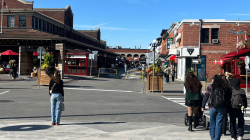Many Ottawa business owners are welcoming the holiday shopping season, which at least one survey is predicting will be a relatively strong one for merchants this year.
Sylvie Richard, owner of La Confiserie Wakefield, said this is a key time of year for the success of her business.
“Luckily, we are in a touristic area so summer is good as well, but Christmas is definitely a good time.”
Richard started her family business 20 years ago and offers items such as handmade fudge, candy and chocolates. While she has a small shop in Wakefield, Que., she was also selling at the Nepean Sportsplex Christmas Craft Show on Nov. 2, an event she’s attended for a decade. It’s one of more than 40 markets open between November and Christmas across Ottawa.
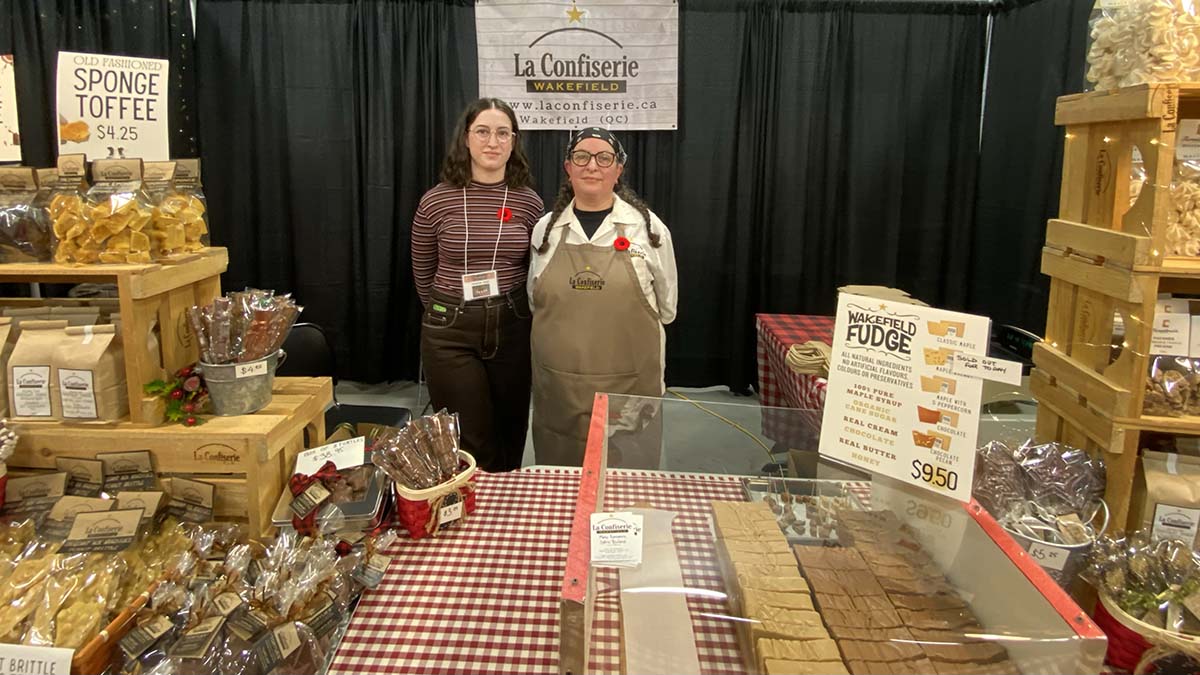
Because La Confiserie Wakefield is at Christmas shows throughout November, Richard said she often sees an increase in the number of holiday shoppers out looking for presents right up until Christmas. She added her Wakefield shop sees more customers starting in early December.
“For us, Christmas starts the day after Halloween every year,” Richard said. “It actually starts in August, quite frankly,” she said.
“Then we go on from there and it kind of lasts until Dec. 24.”
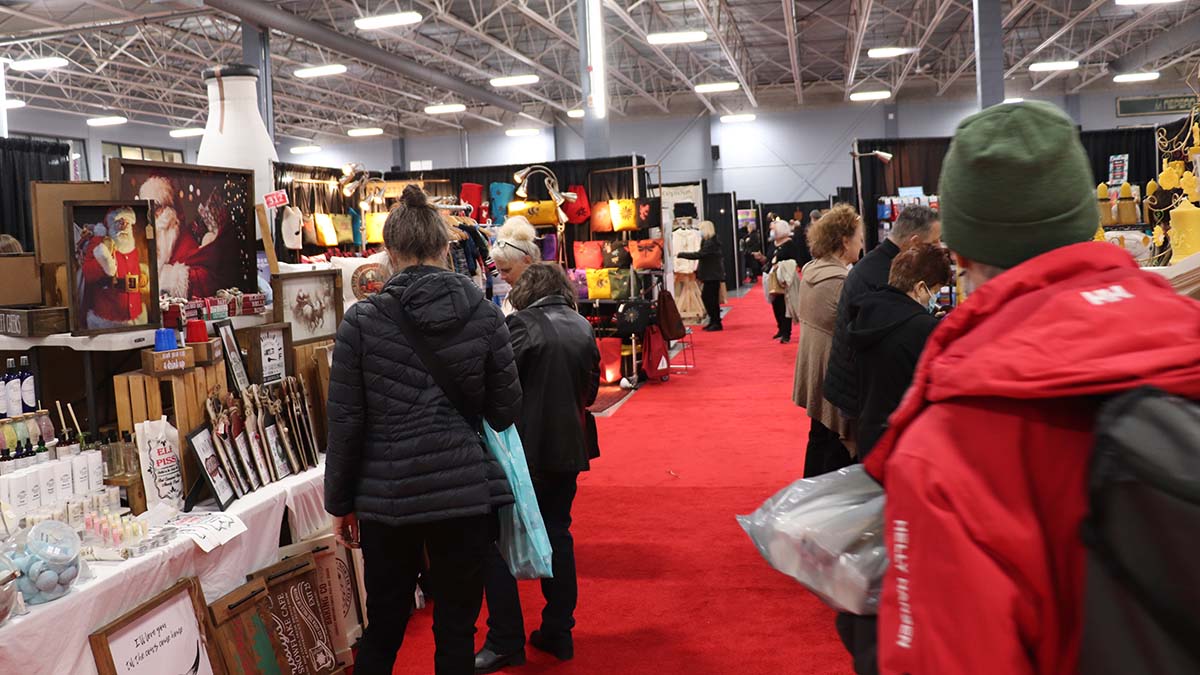
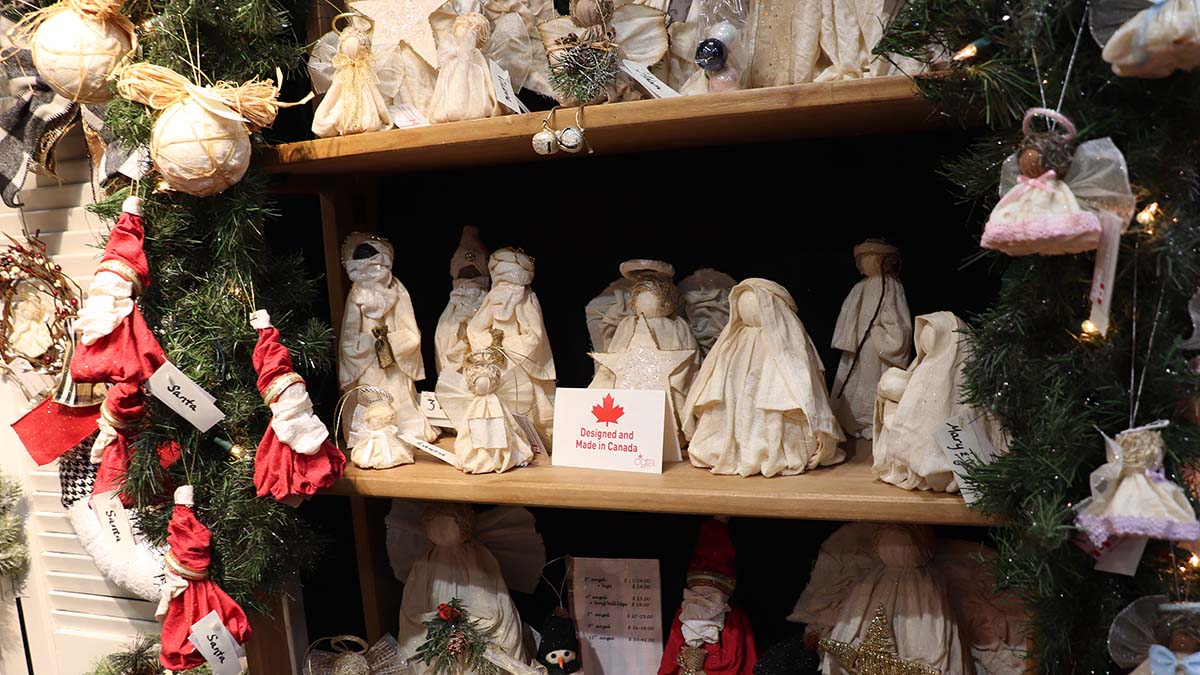
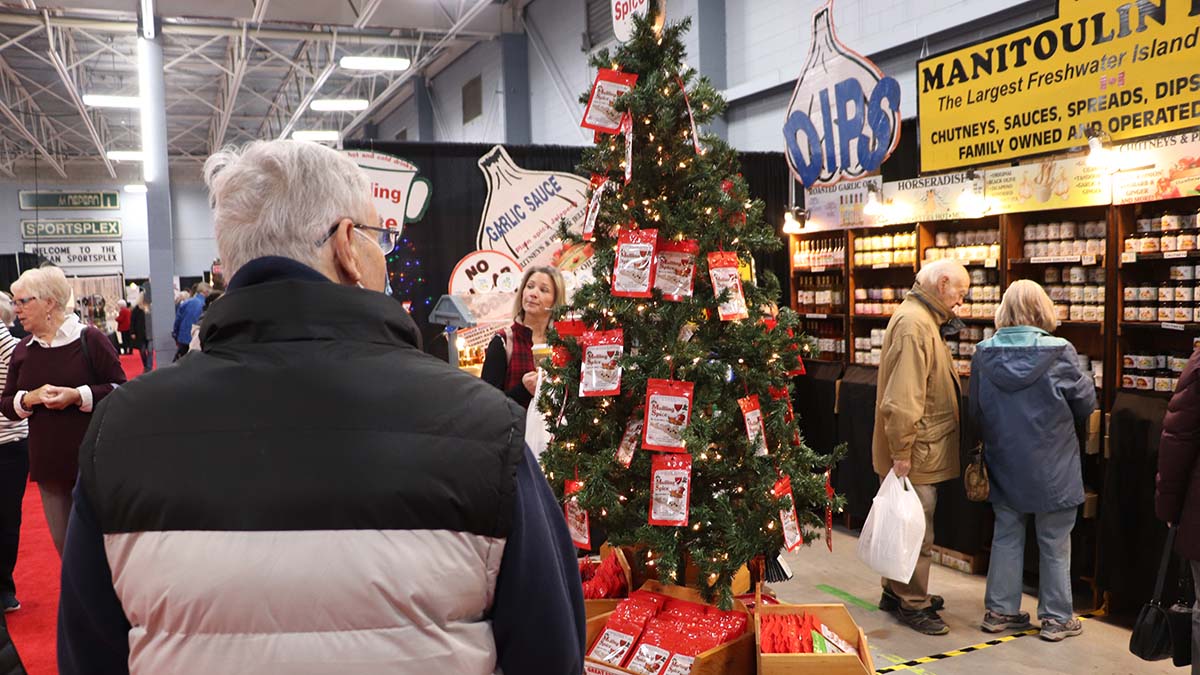
Brittany Balics, a long-time employee of Reiners Originals, a company that specializes in leather ottomans in various animal shapes, said the Christmas season can be chaotic as the company ships their products across the U.S. and Canada.
“We’ll have people emailing us a couple days before Christmas asking for an elephant,” Balics said.
Reiners makes ottomans in the shapes of moose, elephants, bulldogs and more.

For local businesses, it can be equally difficult dealing with the drop in customers after Christmas as it is dealing with the pre-Christmas crunch.
Statistics Canada launched the Real-time Local Business Conditions Index to determine the amount of activity local businesses in certain cities across the country received during and after the COVID-19 pandemic.
Data going back to August, 2020 shows an annual rise each year in November, followed by a steep drop in January.
"There's definitely a lull in January during mud season before conventions can be outside again," said Balics.
While this lull after Christmas gives businesses time to regroup after the Christmas crunch, a November start makes for a fairly long holiday retail season.
Tony Bailetti, an associate professor in the Sprott School of Business at Carleton University, said the drive to capitalize on the holiday season pushes the business and marketing of Christmas into early November.
“If I start earlier, and I extend this very special time of the year, in my head, I will be able to sell more because I got more time and I'll be able to make more money because there's more pressure to buy that kind of stuff,” he said.
He added that this in turn drives the competitive element among businesses.
“Once you start doing it and you and I are competing, I feel I have to do it too … I cannot just say ‘No no, no. Christmas is only two or three days. That's the way I was brought up. I'm not gonna do anything until Dec. 23.’ When you're competing with locals you can't do that.”
But Bailetti said consumers also want businesses to start selling Christmas items sooner because they want more time to shop around and decide what to purchase. He also said there are people who have family members living around the world, so having businesses sell items sooner would give them more more time to ship their gifts.
In Bailetti's view, local businesses might have some advantages over big online retailers.
“Because [Christmas] is a social thing, the social experience is not available when you go to Amazon to buy anything,” he said. “So I think that what you see is the social thing … is being fulfilled by local stores.”
Bailetti said this social component is the reason why he thinks there are so many people shopping at stores during the holidays, but said they will go back and forth between shopping at local businesses and shopping at big box stores.


